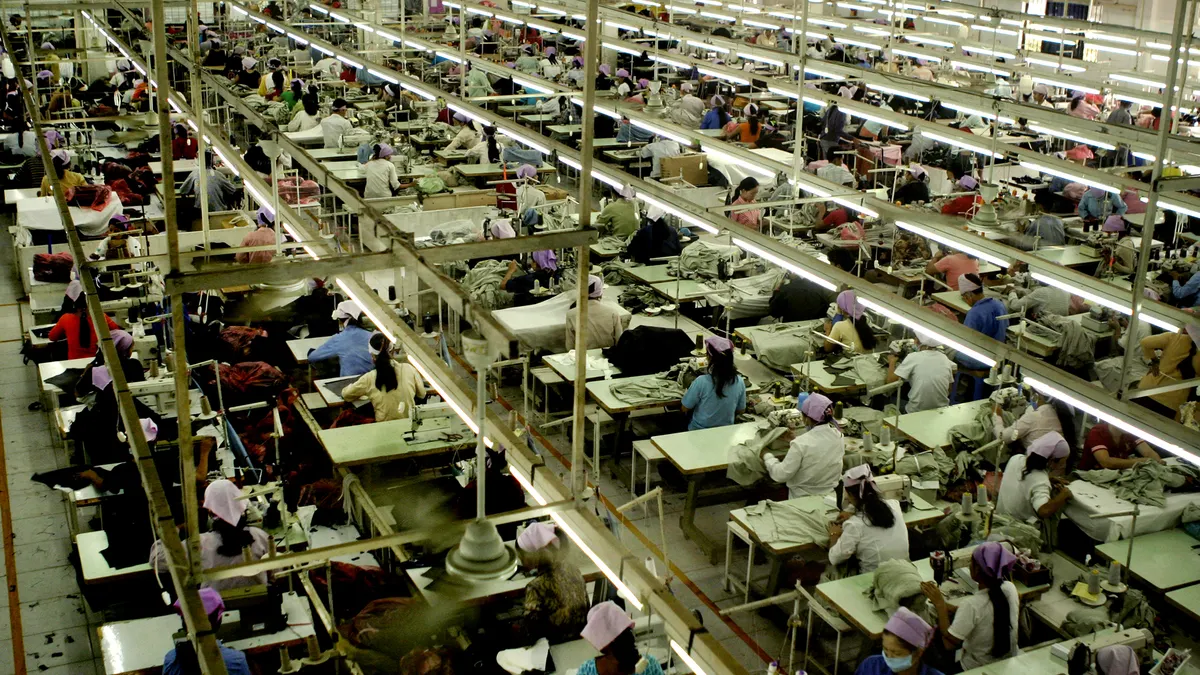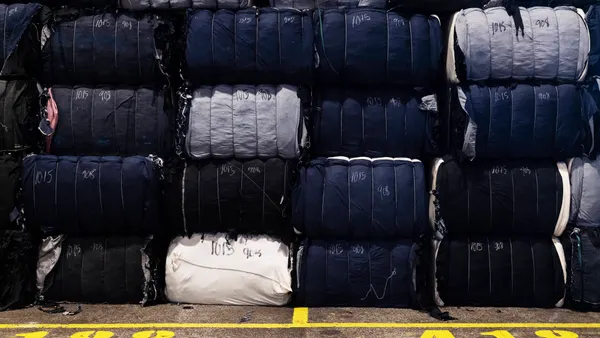Dive Brief:
- A new playbook from traceability company TrusTrace discusses how brands and manufacturers can collect and manage the supply chain data needed to comply with global environmental and human rights legislation.
- The playbook outlines some of the challenges and potential solutions for complying with legislation such as the European Union’s Corporate Sustainability Due Diligence Directive and Ecodesign for Sustainable Products Regulation. The playbook also explores the financial risks of noncompliance due to lawsuits or reduced investment.
- As a result of new regulations, global fashion companies will be required to provide data points on impact, such as suppliers’ carbon emissions and whether primary materials contributed to deforestation.
Dive Insight:
There’s been a recent increase in global regulations targeting environmental and human rights problems in corporate activities, which have led to “significant reporting burdens for suppliers,” TrusTrace said in a press release.
While last year’s playbook covered the digital product passports required by several EU regulations, the new guide identifies 171 data points required by 16 pieces of legislation from the U.S., U.K. and EU, as well as from some individual European countries. These regulations cover multiple issues, including sustainability, human rights, chemical pollution and greenwashing. The guide also explains how certain data points might be available in existing corporate reports and certificates.
As the legal framework for prosecuting companies grows, strategic climate litigation is also increasing, for fashion brands as well as for companies in other industries such as oil and gas, Tiffanie Chan, policy analyst and lawyer at the London School of Economics, said in the playbook.
Chan collaborated on a 2024 study in Nature Sustainability that found that on average, companies experience a 0.41% fall in stock returns after a climate-related filing or unfavorable court decision.
Fashion brands especially are vulnerable to mismanagement, deforestation, and “polluter pays” lawsuits, in which companies are sued for local environmental damage, among other types of cases, according to the playbook. The playbook also stated that banks and pension funds can be sued for funding high-emitters, and even insurers and investors are beginning to evaluate climate risks, all of which “could have implications for the cost of capital.”
The guide also includes interviews with executives at Adidas, Hugo Boss and Primark, along with the suppliers Epic Group, Karacasu Tekstil and Impetus Group.
“My North Star is to get supply chain-related data to the same robustness as financial data,” Sigrid Buehrle, senior vice president of sustainability and environmental, social, and governance at Adidas said in the release. “That’s where we need to get to, with an effective data landscape and a standardized approach to data collection and evaluation.”
Earlier this year, TrusTrace announced a partnership with global nonprofit Textile Exchange on a transaction-based supply chain tracking system specifically for brands that source Textile Exchange-certified materials.










